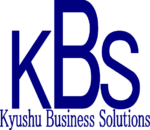
While not all jobs will require a reference or referee, it is a good idea to prepare and act as though all recruiting employers will.
Part of the process is asking for help from people who are in positions to act as a reference, and that means you are asking someone who was your boss, teacher, or some other authority. Therefore, preparation is always important (and helpful) in order to have those key individuals ready to do what is necessary for you – when you need them to do so. That generally requires two things immediately being cleared up, making sure that those you ask are informed that you are starting the process of looking for a job, and to confirm that they are willing to help. Starting early ensures that you give your references ample time to prepare to help you and gives you time to look for alternatives if your first choices don’t work out. Whether a phone call, e-mail or an actual letter, with any reference it is a lot better to ask well in advance rather than at the last minute. No one appreciates a rush, or surprises, and considering that you chose them because you feel that they would make great references means they are likely really busy.
As soon as you decide you might be applying for jobs, create a list of between three and five people who you can contact to let them know would like to designate them as your referee. Politely inform them that you are likely to be applying for new positions and that you would like their permission to have them down as referees and may require a reference letter. You may want to take a bit of time to go see who you would like to ask, so that when you do you’ll be confident of your choice.
The people whom you should be asking will best fit into the category of those who you trust to give an impartial view of what you are capable of doing, as honesty is always best. Make sure that they are also those who are in a position to pass judgement, from the hiring side – in other words, a former boss might be best, but there are others as well such as a senior person who you helped (perhaps on a conference committee). A very important final step is to make sure that those you ask are willing to do it, because is not everyone is prepared to do so.
When approaching those on your list, take the time to let them what you are doing, what might be expected, and why you are asking them, and further explain that you may not even need them. Remember, all of this is taking place well in advance before it becomes necessary, so this is a good time to see if they are willing. Also, make sure that you inform them of the support that you’ll provide so that it will take little of their time.
Once you have settled on your referees, be sure to thank them (if you have not already done so). Send them an email to remind them of what you accomplished with them, and all that you did together, or under their supervision. In addition, you might let them know of other relevant things that could be helpful with giving an informed endorsement. Also send them a sample letter you have written making it easy to edit, then copy and paste into an appropriate letterhead and to be sent off.
When a job advertisement requires that reference letters be sent via post, in plenty of time, get a stamped, addressed envelopes to the referees. This is all part of keeping the process as smooth and easy as possible. By keeping them updated, giving data support, and physical envelopes, and anything else to ease the process you are far more likely to have the required letters in on-time, and ensuring that the reference remains very positive.
Finally, keep those members informed of how your search is going by sending updates and letting them know the progress. And, once you have secured a position, be sure to thank them. For those who went the extra distance to help you, you might even consider a small gift. After all, a good referral can help you land a great job!
Written by Richard Miller














